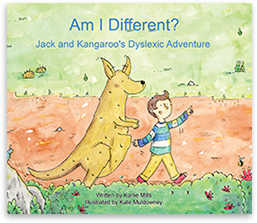
WHAT IS DYSLEXIA?
Dyslexia is a specific
learning disability, which affects the way information is processed. People’s
misconceptions of dyslexia can be that you are unable to read or write.
Dyslexia affects the way you manipulate language, due to how you process
information. In most cases, the best way to approach learning is a multisensory
approach. Dyslexia can affect every aspect of your life, which can include
language-based activities, organisation and time management. Often there are
mental health impacts. This is not because of the actual disability itself, but
bullying, negativity, avoidance or hiding their disability. All of which
cause anxieties, lack of self-belief and self-worth as well as lack of
confidence.
There was a frequent pattern
when working with dyslexic adults; lack of both confidence and
self-belief. How a negative incident regarding their dyslexia, in school
or during childhood, directly or indirectly, had impacted and shaped them as
adults.
This didn’t mean that they weren’t
capable of achievements throughout their life, but they doubted their own
success, believed they were going to get ‘found out’ for having their “dirty
little secret” (direct words from a client), which they wanted to remain
hidden. I am referring to people across all walks of life, from academics to
people whom have a labour-based job. Anyone being told they shouldn’t or
couldn’t, but did, is an accomplished person.
How can we expect children to
live and thrive with dyslexia if they see and hear adults around them talking
about dyslexia in a negative way?! Wouldn’t it be nice to live in a world where
everyone appreciates a brain that works in a different way, the fact is – we
don’t! That doesn’t mean that a dyslexic brain should be thought of as anything
other than a functioning brain. Dyslexia comes with problems, more often than
not mental health issues, but there are also strengths which include having
high levels of empathy, thinking outside the box, great problem solvers,
three-dimensional thinking, creative, observant and innovative.
The book ‘Am I Different –
Jack and Kangaroo’s Dyslexic Adventure’ was created to empower and educate
children primarily with dyslexia, but can be related to any
difference/disability. The story follows a child and a kangaroo on a dyslexic
journey, from the initial ‘scary’ diagnosis, to when the child notices he is
different, concluding with an empowering endnote. The focus was simple,
to empower children. To let them take ownership of their dyslexia, yes, they
are different, this does not mean they are stupid. Where in the definition of
different is the word stupid?! The story promotes a child who has the struggles
and a label of dyslexia, the realisation that he is different and he struggles
with certain things, but that he is still able and capable. I truly believe
anyone with dyslexia can do and be anything they choose, will it be easy, no!
They will have to work twice, maybe even three times as much as a
non-dyslexic. Is that fair, no! But life isn’t always fair, with the
correct support and understanding of their dyslexia, which this book promotes,
we can encourage children to thrive.
The aim of this book is to
break down barriers for children with dyslexia, help them believe in themselves
when adults around them who are doubting them. The purpose is to help educate
children and adults alike, to help minimise the negative thoughts and opinions
of uninformed people regarding dyslexia.
Post Views : 214